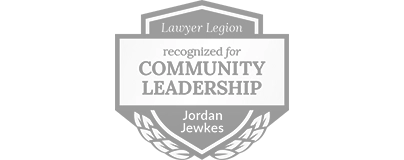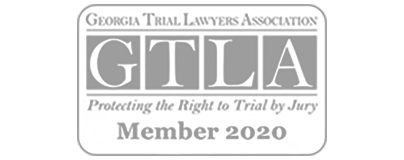Home | Glossary of Personal Injury Terms | Expert Witness
Expert Witness
In the realm of legal proceedings, witnesses play a pivotal role in shaping the outcome of a case. Georgia law categorizes witnesses into two distinct types — lay witnesses and expert witnesses. While lay witnesses can only speak to their personal experiences, an expert witness has the authority to provide testimony based on their specialized knowledge and expertise in a particular field.
Who Are Expert Witnesses?
Expert witnesses are professionals with specialized skills or knowledge in areas such as medicine, accident reconstruction, and vocational rehabilitation. Their insights can be critical in cases where complex issues require an informed perspective, making their testimony potentially indispensable depending on the circumstances of the case.
Types of Expert Witnesses in Georgia Law
Within the legal framework, expert witnesses serve two primary functions testifying witnesses and consulting witnesses.
Testifying Witnesses
A testifying witness appears in court and provides expert opinion. When utilizing a testifying witness, legal teams must adhere to specific procedural requirements:
- Notification to the opposing party regarding the intent to use the witness.
- Availability of the witness for deposition questioning.
- Disclosure of the witness’s notes, opinions, and related work products during pretrial discovery.
- Presentation of the witness’s qualifications in court, where the opposing party may challenge their credibility.
- Facilitation of cross-examination by the opposing party during trial.
A testifying witness’s opinions can be leveraged to strengthen settlement negotiations, even if a lawsuit is not filed.
Consulting Witnesses
In contrast, consulting witnesses do not take the stand to testify, and there are no formal obligations to inform the opposing side of their involvement. This category of expert witness serves various purposes, such as:
- Advising attorneys on complex issues that require specialized knowledge, such as medical topics in malpractice cases.
- Identifying potential defenses that the opposing party may utilize.
- Assisting in the preparation of legal documents that necessitate an advanced understanding of specific subjects.
Additionally, consulting witnesses can serve as a backup for testifying witnesses, ensuring that legal representation remains robust.
What Qualifies an Expert Witness?
Determining what qualifies an individual as an expert involves a subjective assessment by the court. Common indicators of expertise include:
- Relevant academic degrees (e.g., a Ph.D.).
- Publications in reputable academic journals.
- State licensure and professional certifications.
- Recognition through awards or honors within their field.
- A strong professional reputation.
An expert witness may not need a doctorate to be deemed qualified, depending on the nature of their expertise.
The Daubert Standard
To mitigate the risk of unqualified individuals posing as experts, Georgia courts apply the Daubert standard. This standard evaluates the admissibility of expert testimony based on several criteria:
- The testability of the theory or technique used by the expert.
- Publication in peer-reviewed journals.
- The error rate associated with the expert’s methodology.
- The existence of enforceable standards governing the expert’s work.
- General consensus regarding the methodology among the pertinent scientific community.
Judicial decisions concerning the acceptance of expert reasoning consider these factors collectively.
The Evolution of the Expert Witness Profession
The expert witness field has seen significant professionalization over the years. Many experts no longer engage in full-time practice in their original fields but instead focus on providing testimony. Numerous agencies exist to connect attorneys with experts across various disciplines.
Credibility Concerns in Expert Witness Testimony
Experts are compensated for their services, but there can be skepticism regarding their impartiality. Jurors may view paid witnesses as “hired guns” because opposing parties often highlight their payment. However, in many personal injury cases, such as medical malpractice or product liability, the presence of expert witnesses is standard practice.
Interestingly, professional expert witnesses often exhibit superior testimony skills compared to those still practicing in their fields. Their extensive experience with cross-examination equips them to navigate courtroom pressures and the strategies employed by opposing counsel.

GEORGIA PERSONAL INJURY LAWYER NEAR ME
Get Help from a Georgia Personal Injury Attorney
If you require expert witness services, working with an experienced personal injury lawyer can be invaluable. A seasoned attorney will likely have established relationships with various experts, facilitating the process of finding the right witness for your case.
Financial constraints should not deter you from seeking legal assistance, as personal injury lawyers typically operate on a contingency fee basis. This means you incur no upfront costs; if you win your case, your attorney’s fee is a percentage of your awarded compensation.
Navigating the complexities of personal injury claims and the legal system can be challenging. A knowledgeable Georgia personal injury attorney can advocate on your behalf, engage with insurance companies, draft necessary legal documents, and represent you in court.
For a free consultation and dedicated legal representation, reach out to The Jewkes Firm at (770) 771-5130. Ensure you receive the support you deserve in your legal journey.
GET A FREE CASE REVIEW
PRACTICE AREAS
Frequently Asked Questions?
Do I need a personal injury attorney?
The Jewkes Firm is well-versed in effectively challenging major insurance companies on your behalf to secure the highest settlement permissible by law. Our primary objective is to ensure your optimal recovery. It is only after this point that we assess the worth of your case.
What is the deadline for filing an injury case in Georgia?
The timeframe for filing an injury case, also known as the statute of limitations, can vary significantly. As per OCGA §9-3-33, you are granted a two-year period from the date of your injuries or the passing of a family member to initiate your personal injury claim.
What is the cost to hire a personal injury attorney?
There is no upfront cost associated with hiring a personal injury lawyer. Our fees are based on a percentage of your settlement, meaning you only pay if we successfully recover compensation. Our top priority is ensuring your well-being and helping you return to your normal life.
What damages can you recover from a personal injury?
A personal injury lawyer aims to establish negligence and seek restitution for the harm caused by the liable party. Additionally, you may be entitled to compensation for funeral costs, medical expenses, and income lost if you are a family member of someone who died as a result of an injury.
Free Case Evaluation











